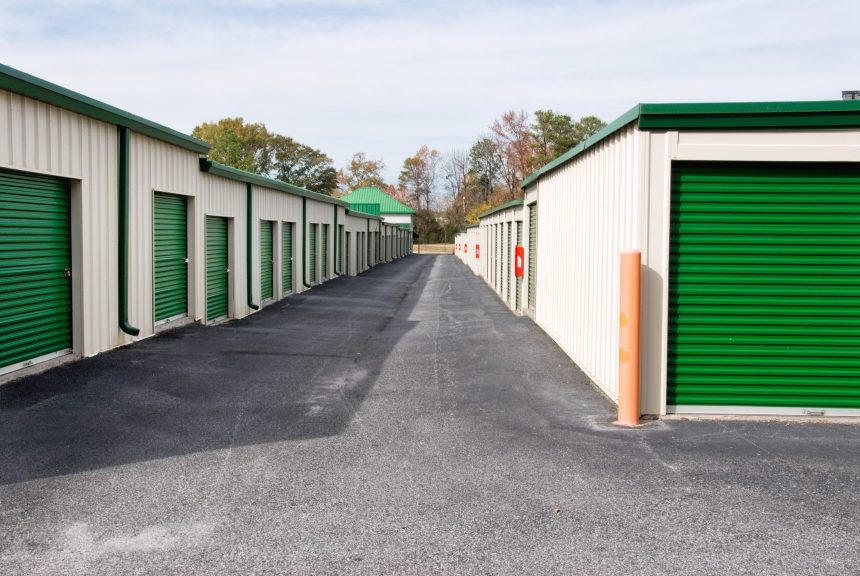If you’re an eCommerce seller or online retailer based in India, chances are that warehouse and storage solutions have crossed your mind more than once. With the right type of warehouse, you can increase efficiency, save money and grow your business – but with so many different types to choose from, which one is best for you? In this blog post, we will explore the eight most common types of warehouses and how they differ in features that make them suitable for a variety of businesses. We’ll also guide what elements to look at when choosing the type of warehouse that’s right for your situation.
So whether you’re just starting out or further along on your journey as an eCommerce entrepreneur or online retailer, read on to learn about different types of warehouses and the ones you should use for your business.
Importance of Warehousing for eCommerce Businesses?
Warehousing is an integral element of eCommerce businesses, as it serves as a backbone to facilitate both order fulfilment and storage of merchandise. It also helps provide the crucial logistical systems that ensure that the right items get to their destination efficiently and cost-effectively. Types of warehouses can range from large facilities that handle millions of dollars worth of merchandise to smaller operations which may only manage a few hundred orders per month.
Additionally, with the availability of many reputable warehousing and logistics services in India, eCommerce businesses can make informed decisions when deciding on where they wish to store their products. All these factors highlight the importance of warehousing for any eCommerce business looking to succeed in today’s competitive online marketplace.
When it comes to eCommerce, a warehouse is an essential part of the equation. It’s where you keep your inventory and where orders are fulfilled. But not all warehouses are created equal. There are 8 different types of warehouses, each with its own advantages and disadvantages. Read on to learn more about the different types of warehouses and determine which one is best for your business.
1. Public Warehouses
Public warehouses are owned by third-party logistics companies and can be rented out to store goods for short or long periods of time. These warehouses usually have well-developed infrastructure, making them ideal for businesses that need quick access to goods or those that don’t have the resources to invest in their own warehouse facility.
2. Bonded Warehouses
Bonded warehouses are regulated by customs authorities and used to store goods that have been imported into a country but haven’t yet cleared customs duties or taxes. These warehouses provide secure storage until duties are paid, at which point the goods can be released into the market legally.
3. Container Warehouses
Container warehouses are designed to store large quantities of goods in shipping containers, which can be loaded onto trucks, ships, or trains for transportation across long distances quickly and easily. This type of warehouse is ideal for businesses that need to transport goods across borders often or over long distances quickly and securely.
4. Cold Storage Warehouses
As the name suggests, these types of warehouses specialize in storing perishable goods like food items at specific temperatures for extended periods without compromising quality or freshness. Cold storage warehouses come equipped with refrigeration units and other special features like humidity control systems to maintain product integrity during storage and transportation processes.
5. Automated Warehouses
Automated warehousing systems use robots and other automated machinery to move products around within a warehouse facility quickly and accurately with minimal human intervention required (or even possible). This type of warehouse system is ideal for businesses that require fast turnaround times when fulfilling orders as it reduces human error significantly while speeding up operational processes immensely compared to manual systems used in traditional warehouses.
6. Bulk Warehouses
Bulk warehousing systems allow businesses to store large quantities of raw materials that require minimal handling before being transported elsewhere (like factories). These types of warehouses typically have multiple levels that allow easy access from forklifts as well as automated conveyor belts that make transporting goods faster than ever before!
7. Cross-Docking Facilities
Cross-docking facilities are designed specifically for businesses that deal in high volumes of products requiring quick turnaround times–like grocery stores or other retail outlets–as they allow products to be unloaded from incoming trucks/ships directly onto outgoing vehicles with minimal handling required in between! This drastically reduces lead times while increasing efficiency throughout entire supply chains simultaneously!
8. Pick & Pack Facilities
Pick & pack facilities specialize in receiving orders from customers online and then packing them up ready for shipment using automated machines like robots or conveyor belts before finally sending out customer orders via mail/courier services etc! This type of warehouse system is perfect for eCommerce businesses looking to reduce labour costs while maximizing throughput capacity within their operations!
When it comes to choosing a warehouse for your business, it’s important to consider your specific business requirements. Reputed logistics players like NimbusPost offer quality warehousing and logistics services in India to meet the end-to-end order fulfilment needs of eCommerce merchants. Storing your inventory in their warehouses, near your customers can greatly help in bringing down your fulfilment costs. Further, locating inventory near customers also helps in reducing delivery timelines, thereby resulting in low RTO rates and higher profit margins.
Conclusion
With 8 different types of warehouse facilities available today, selecting the right one for your business can seem daunting; however, understanding each type’s strengths and weaknesses will help you make an informed decision about which one best suits your business needs! When choosing a warehouse facility it’s important both now & down the line—to ensure you select one that meets both immediate & future requirements so you don’t incur additional expenses later on due to poor planning today! By taking all these factors into consideration before making a choice—you can make the most cost-effective and informed decision while choosing a warehousing solution for your online business!














